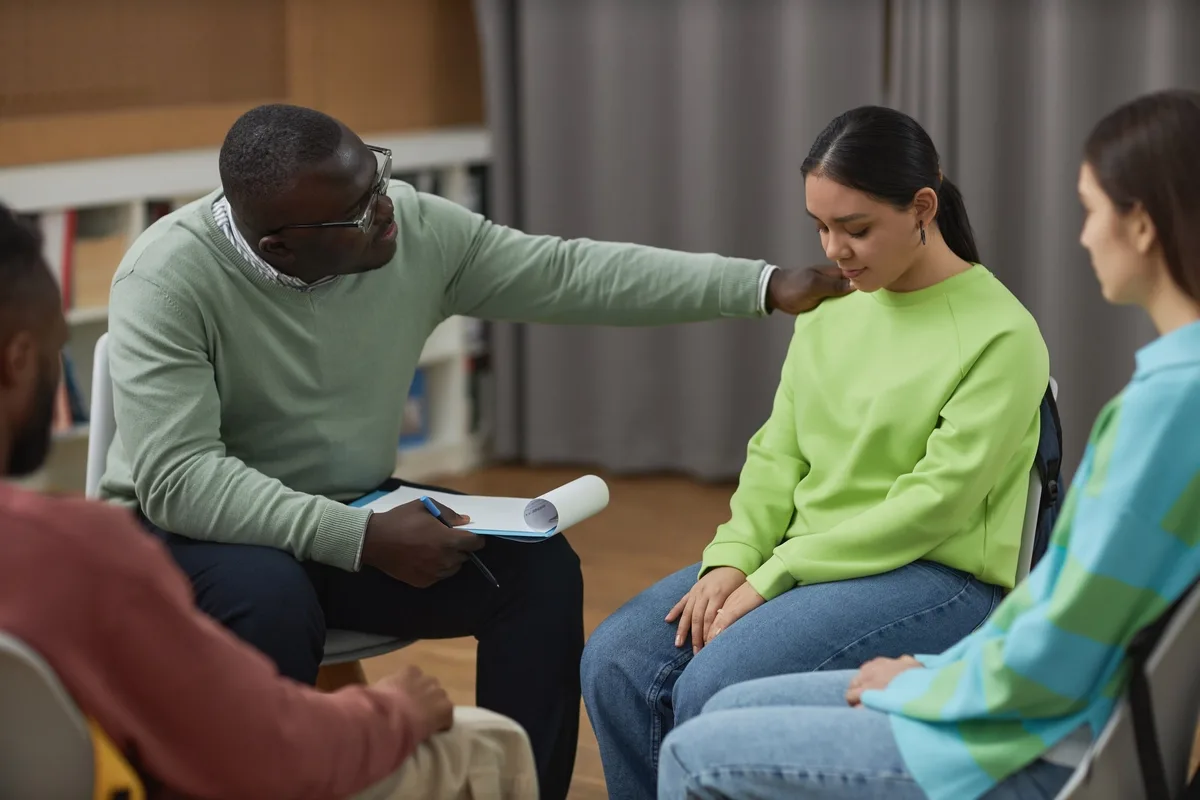24/7 Helpline:
(866) 899-221924/7 Helpline:
(866) 899-2219
Learn more about Group Therapy centers in Covina
Group Therapy in Other Cities

Other Insurance Options

Health Net

Coventry Health Care

PHCS Network

Lucent

WellPoint

American Behavioral

Premera

Evernorth

Optima

Magellan Health

Humana

Providence

WellCare Health Plans

UMR

Sliding scale payment assistance

Self-pay options

ComPsych

Magellan

Medical Mutual of Ohio

Molina Healthcare

Stepping Stones Home
Stepping Stones Home is a private rehab located in Covina, California. Stepping Stones Home speciali...

Social Model Recovery Systems – River Community
Social Model Recovery Systems - River Community offers outpatient and intensive outpatient treatment...

Center for Integrated Family Health – Sober Solutions
Center for Integrated Family Health – Sober Solutions is a private rehab located in Covina, Californ...

Puente House
Puente House is a sober living house for individuals recovering from drug addiction or alcohol abuse...

NCADD – National Council on Alcohol and Drug Dependency
NCADD – National Council on Alcohol and Drug Dependency is a non-profit rehab located in Covina, Cal...

Stepping Stones
Stepping Stones offers inpatient treatment for individuals with alcohol and/or substance addiction. ...

Social Model Recovery Systems
Social Model Recovery Systems offers outpatient services for adults and adolescents with alcohol and...

Puente House – Men’s House
Puente House - Men's House is a sober living house for individuals recovering from drug addiction or...

Puente House – Women’s House
Puente House - Women's House is a sober living house for individuals recovering from drug addiction ...

Aurora Charter Oak Behavioral Health Care
Aurora Charter Oak Behavioral Health Care provides mental health and substance abuse services for ad...

Citrus Counseling Center
Citrus Counseling Center is a non-profit rehab located in Covina, CA. Citrus Counseling Center speci...





Santa Anita Family Service
Santa Anita Family Service is a private rehab located in Covina, California. Santa Anita Family Serv...

Cypress House
Cypress House is a private rehab located in Covina, California. Cypress House specializes in the tre...

Welcome To Life Sober Living Centers – Rehab House
Welcome To Life Sober Living Centers - Rehab Transitional House is a rehab facility located in Covin...





